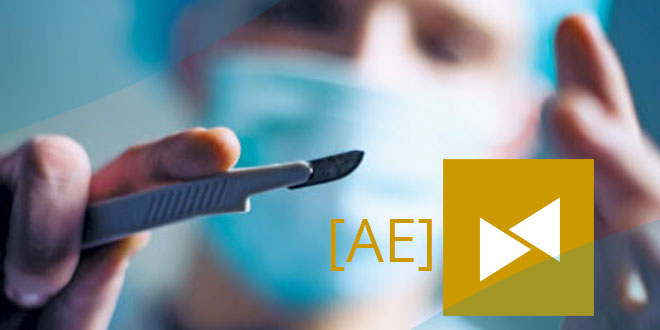To date, almost 800+ assets have been issued on the Nxt Asset Exchange (AE) since it was launched less than 3 years ago, as the first implementation of the coloured coin concept in crypto.
Some assets have gained magnificent market cap, in some periods even outperforming its reference currency, NXT. While others have been issued as experiments and some have, unfortunately, been scams.
The Nxt AE has been running secure and stable during all this time and continues to impress issuers and users with its advanced built-in features. In the Nxt Client, you can easily search for assets by their unique asset ID – but how can you find these IDs? You can trawl through asset threads on nxtforum.org or you can check an asset list on a Nxt Blockchain explorer.
That’s it. Because to this date, we have not had any service or central hub dedicated to rating, describing, or warning against fake assets.
How to find the good assets?
On the AE there’s no built-in hand holding. No regulation, no government protection, as it’s a 100% decentralised global asset market. There is no built-in KYC registration (such can be implemented on Ardor child chains), so investments and trades made on the AE are based on whether you trust the issuer / business or not.
Do your due diligence. Investigate. Ask questions to the issuer.
Experienced AE traders know this. Asset issuers should be aware of it too and go a long way to provide details and quality answers to their potential backers. But, let’s be honest, more than a few asset issuers got shocked by the community’s “guilty until proven trustworthy” approach, felt attacked, and ran off from NxtForum, after going in there full of energy and ideas, pitching their most promising project in an [ANN] thread, combined with a well-prepared business model (or not!), and possibly even a 100% working product to give ROI to their investors – if only they’ll back the startup.
While some campaigners may have only spent minutes on writing their pitch (and, thus, will be ignored), others have worked hard for months, or even years, on their business idea or software before finally seeking funds.
In both cases, the campaigners will be questioned, thoroughly, about their personal backstory as well as their business plan and product or service offering. If there are obvious holes in the issuers’ plans, it will show, and critical questions, and thus, judgement from the masses might not always come out politely in such cases. Wise asset issuers / campaigners thank the community for the free consultation and up their game and announce the necessary changes to the plan. Or, they defend their plan because it’s well thought through and fine. Campaigners would know if such a response was successful or not through the follow-up feedback from the community.
Either way, the process is tough on issuers. Some feel confident, others humiliated or trolled. Some give good answers while others can’t handle the stress and finally answer back aggressively. Unfortunately, then they lose out.
This is bad for investors. Not if the asset was a scam, of course, but unfortunately it isn’t always so.
So back to the question: how to pick the good assets – and avoid the bad?
[ANN] Nxt Assets “Under the Knife”

In a new interview series hosted on Nxter.org, I will approach asset issuers with questions that are relevant to AE investors. I won’t be soft. Thus the title for the article series: “Under the Knife”.
Issuers will get an opportunity to read the article before it gets published. This is to give them a chance to make changes to their approach instead of having potential flaws revealed out in the open, on the oh-so-never-forgetting internet (who wants a “scam” post connected to their new great business name on Google search results?). Asset issuers can refuse to make an interview, but they can also ask for one to be made.
If an asset issuer decides to sponsor an article in the series, they won’t be guaranteed any recommendation. It can only be guaranteed that we’ll do our independent research and due diligence and publish it, which may turn out to their advantage – or their disadvantage. No asset sales are guaranteed.
Why?
Nxter.org works independently, yes, we’re a rare case. We’ve proven more than once that we can’t be bought. We exist to provide readers and investors with non-biased information. With this approach, we also give issuers a more seriously researched article, to which they can point both forum trolls and interested investors, instead of wasting time on answering the same more or less relevant questions over and over again in different chat rooms, private messages, and forums.
There are too many scam ICOs in the world of cryptocurrency but there are also too many hidden opportunities on the AE. The current situation is bad for investors and bad for crowdfunders as well, so let’s try to give both parties a helping hand. If you’re interested in helping, please contact us. In parallel with the interview series, we are building the nxter.org/assethub. More info about that will be available asap.
Who’ll get cut?
Time will tell. The first interview has been made with the Janus project. It felt natural, as they are currently hosting an ICO. Janus is a start-up business conglomerate that will be using the Nxt dividend feature to distribute BTC dividends, and may also implement their Nxt AE Janus token in some of their businesses…. or so they say. Check nxter.org tomorrow and read the first “Under the Knife” asset issuer interview.
UPDATE:
Under the Knife #1: The Janustoken
You can subscribe to the Nxter Newsletter, if you want the interview sent to your mailbox.
